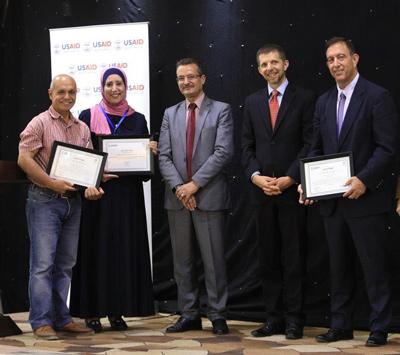You are here
200,000 patients travel to Jordan annually for treatment — World Bank
By Khetam Malkawi - Apr 18,2015 - Last updated at Apr 18,2015

AMMAN — The quality of healthcare in Jordan is “notably uneven”, with the poor, the vulnerable and residents of rural areas lacking access to high-quality essential health services, according to a recent World Bank report.
The World Bank’s “Trust, Voice and Incentives: Learning from Local Success Stories in Service Delivery in the Middle East and North Africa” report launched last Thursday said Jordan has a reputation in the MENA region for high-quality specialty care, prompting some 200,000 patients to travel to the Kingdom from other countries each year seeking treatment.
However, some vulnerable segments have no access to high-quality essential health services, the report said, adding that Jordan’s problem is due to “inefficiency coupled with inequity in financing and the provision of services to meet citizens’ needs”.
The availability of quality services, according to the report, depends not only on providing material and human resources, but also on establishing good governance procedures and practices to use these resources effectively.
The findings are based on visits to six clinics in four of the Kingdom’s 12 governorates (Amman, Balqa, Jerash, and Ajloun), where interviews were conducted with chief medical officers, medical and administrative staff, patients and members of local health committees, the report said.
Visual inspection of the facilities and administrative records was also conducted to assess the condition of existing infrastructure and equipment, the availability and control of pharmaceutical stocks, and the management of patient health records and other health and administrative information.
Although the “results of this exploratory study are not readily generalisable... they point to structural constraints that limit the ability of health facilities to provide equitable access to high-quality essential services”, the report said.
It added that at the central level, the Ministry of Health plays an important and dominant role in supporting healthcare centres, but the current system lacks incentives to promote sufficient staffing, particularly of female doctors and staff in less desirable posts such as in rural and remote areas.
In addition, although the system of using primary healthcare centres as an entry point for doctors trained abroad helps provide these facilities with a steady stream of “newly minted doctors”, most leave the clinics after a short period to return to specialised medical training.
“Resource limitations thus create a system dominated by less experienced staff and foster a high turnover, which in turn hinders communication and the formation of trust between communities and health clinic staff, as well as among staff within facilities and with the Ministry of Health,” the report added.
Related Articles
The Ministry of Health (MoH), the US Agency for International Development (USAID) and the Health Care Accreditation Council has recognised 1
AMMAN — Jordan Field Hospital "Nablus/1" started its operations on Thursday, providing medical treatment to patients in the occupied West Ba
AMMAN — The quality of healthcare services in Jordan is generally “low”, especially in the public sector, according to research published by














